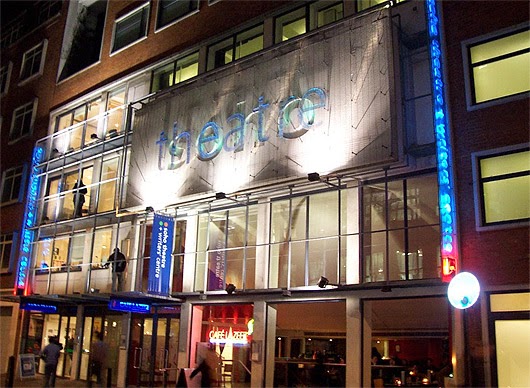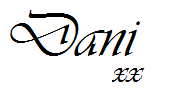Theatre Conversations
I had very interesting conversations over the weekend with practitioners who specialise in writing and dramaturgy, whom I greatly admire.
New Theatre
Many Dramaturgs work, essentially as sounding boards for new plays and playwrights. During the conversation this practitioner mentioned that they had seen an explosion in new work from about the mid-90's; prior to that there were only a couple of theatres that promoted new work, and even then much of the programming was made up of classic or popular plays. I asked what had brought about the change and the explanation was that the government had given huge grants to theatres to put on work by new writers.
Opinion:
In the mid-90's the UK was experiencing a boom; there was more money around and therefore more disposable income. In times of recession, people often cling to the familiar and do not have the money to spend on taking a risk watching a new play that they may not enjoy. I also believe that having more money increases confidence and therefore pride; the governments promoting of new, homegrown playwrights is a symptom of national pride, creating a national voice, which is what Gotthold Lessing (the first recognized Dramaturg) was tasked with doing at the creation of the National Theatre in Hamburg in the 1760's.
However this doesn't necessarily explain the proliferation of New Writing Theatres at the moment; we have just had one of the longest recessions in history, yet new writing is flourishing with several theatres in London dedicated just to new writing, new adaptations or new stagings. Why is this? I believe it may be partly because much new writing tends to be quite 'gritty' or realistic, highlighting the problems with society. Maybe it is a form of catharsis for an audience to witness characters whose problems are greater than our own? Does it help to put our own issues into perspective to watch a play about the slums of India (Behind The Beautiful Forevers - The National Theatre) or murder, violence and sex-trafficking (Pig Girl - Finborough Theatre)?
Is it that audiences nowadays are more likely to want to be challenged than audiences twenty years ago? Are we more jaded or less willing to accept the norm? Or are we more adventurous and questioning these days? Are audiences 'bored' of the classics, or is it because we associate plays like those by Shakespeare, Ibsen et.al. with school work and therefore think of them as academic or stuffy?
This, to me, is similar in a way to my previous professional experience in Cabaret and Variety performance; Cabaret, historically, thrives in times of recession. Audiences who may want a 'different' experience may not have the money to spend on going to the theatre to see something new and risk not enjoying the production, then having to sit through two hours of an unenjoyable experience. In Cabaret, if you don't like what's on stage, something else will be along in five minutes that may be more to your taste. Cabaret also has a place as a mirror to society, reflecting the absurd and making mockeries of current events.
Originally Published at http://bit.ly/1N2WGJ7
New Theatre
Many Dramaturgs work, essentially as sounding boards for new plays and playwrights. During the conversation this practitioner mentioned that they had seen an explosion in new work from about the mid-90's; prior to that there were only a couple of theatres that promoted new work, and even then much of the programming was made up of classic or popular plays. I asked what had brought about the change and the explanation was that the government had given huge grants to theatres to put on work by new writers.
The Soho Theatre: one of the homes of new writing in London
Image Source: theatresonline.com
Opinion:
In the mid-90's the UK was experiencing a boom; there was more money around and therefore more disposable income. In times of recession, people often cling to the familiar and do not have the money to spend on taking a risk watching a new play that they may not enjoy. I also believe that having more money increases confidence and therefore pride; the governments promoting of new, homegrown playwrights is a symptom of national pride, creating a national voice, which is what Gotthold Lessing (the first recognized Dramaturg) was tasked with doing at the creation of the National Theatre in Hamburg in the 1760's.
However this doesn't necessarily explain the proliferation of New Writing Theatres at the moment; we have just had one of the longest recessions in history, yet new writing is flourishing with several theatres in London dedicated just to new writing, new adaptations or new stagings. Why is this? I believe it may be partly because much new writing tends to be quite 'gritty' or realistic, highlighting the problems with society. Maybe it is a form of catharsis for an audience to witness characters whose problems are greater than our own? Does it help to put our own issues into perspective to watch a play about the slums of India (Behind The Beautiful Forevers - The National Theatre) or murder, violence and sex-trafficking (Pig Girl - Finborough Theatre)?
Is it that audiences nowadays are more likely to want to be challenged than audiences twenty years ago? Are we more jaded or less willing to accept the norm? Or are we more adventurous and questioning these days? Are audiences 'bored' of the classics, or is it because we associate plays like those by Shakespeare, Ibsen et.al. with school work and therefore think of them as academic or stuffy?
The Royal Court Theatre, London: programmes a combination of classic work and new writing
Image Source: travelstay.com
This, to me, is similar in a way to my previous professional experience in Cabaret and Variety performance; Cabaret, historically, thrives in times of recession. Audiences who may want a 'different' experience may not have the money to spend on going to the theatre to see something new and risk not enjoying the production, then having to sit through two hours of an unenjoyable experience. In Cabaret, if you don't like what's on stage, something else will be along in five minutes that may be more to your taste. Cabaret also has a place as a mirror to society, reflecting the absurd and making mockeries of current events.
Originally Published at http://bit.ly/1N2WGJ7





It's been interesting reading your blogs and seeing how you have began to develop your ideas for an inquiry! I actually had never heard of a Dramaturg before reading your posts, and i think it is actually a job that i would quite enjoy myself! It sounds really interesting, and i think that you are developing some really interesting questions.
ReplyDeleteIn terms of audiences wanting to be more challenged now than in the past, i definitely think that to be true. Even in society, there are so many things that have changed over the last twenty years, things that wouldn't have been socially acceptable in the past are becoming more and more the norm and i think this changing of thinking is becoming apparent with theatre as well.
I can't pretend that i know as much as i should about theatrical trends and audience tastes, but looking at theatre shows that are around, i do think audiences are more adventurous which is why more wonderful and wacky shows are appearing! I think its also interesting to think about linking the older shows to school, and i know from working in school and from being at school that not many of my friends or students would ever choose to go and watch something to do with Shakespeare, purely because they do think SCHOOL! It is such a shame because it is obviously much more than that, but it seems to be the way that people want new and exciting things, and often different and controversial things!
xx